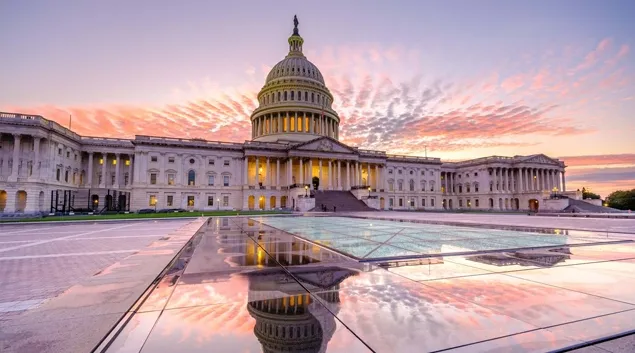
New bipartisan legislation introduced by two U.S. Representatives would require Medicare Advantage to “adequately reimburse” healthcare providers for services offered to enrollees.
Introduced by U.S. Representatives Lloyd Doggett (D-TX), Ranking Member of the Ways and Means Health Subcommittee, and Health Subcommittee member Dr. Greg Murphy (R-NC), the Prompt and Fair Pay Act establishes a floor requiring MA plans to reimburse for all covered healthcare items and services at least what would have been paid under Medicare Parts A and B. Plans and providers would be able to continue negotiating higher reimbursement rates.
The legislation also establishes prompt payment rules for clean in-network claims, which are requirements that would mirror those under Medicare Part D.
“Medicare Advantage was conceived with good intentions, but absent updates and reforms, insurers will continue to exploit and abuse the program to bilk the federal government at the expense of patients and physicians,” said Murphy.
WHAT’S THE IMPACT
Although Traditional Medicare spending serves as the benchmark for MA payments, the law currently does not require MA plans to reimburse providers at the same rates. As a result, Doggett and Murphy said many hospitals, provider groups and other health systems are operating in the red and are forced to withdraw from MA contracts.
Twenty-seven health systems have left the MA program this year, the lawmakers said in an announcement, and it’s estimated that skilled nursing facilities lost $13.8 billion in 2024 because MA plans reimbursed significantly less than Traditional Medicare.
Doggett and Murphy have also requested that the Government Accountability Office conduct an independent investigation into vertical consolidation of Medicare Advantage Organizations.
The bill has received endorsement from several industry groups, including America’s Essential Hospitals, American Academy of Family Physicians, American College of Physicians, American Occupational Therapy Association, LeadingAge, National Rural Health Association, Premier, Texas Hospital Association, Texas Organization of Rural and Community Hospitals, Texas Association for Home Care and Hospice, and the American Association of Nurse Anesthesiology.
THE LARGER TREND
This year, Medicare Advantage overtook original Medicare as the plan of choice for people 65 years and older, those with disabilities or end stage renal disease who need healthcare coverage.
Currently, 51% of those on Medicare have a Medicare Advantage plan, compared to 49% of those who have original Medicare, according to a March report from healthcare advisory firm Chartis and consulting firm HealthScape Advisors. Last year, there was a 50% split in enrollment for each.
This compares to five years ago, when 60% of seniors had original Medicare and 40% were in a Medicare Advantage plan.
MA growth has skyrocketed in the last five years due in part to the aging demographics of baby boomers. However, this year is expected to be the peak annual age-in for Medicare overall, according to the report.
This year was the highest on record for overall Medicare growth.
An interesting trend is that for the first time, original Medicare enrollment has not declined, despite MA gaining the upper hand in market share. Original Medicare grew by about 200,000 beneficiaries this year.
Email: jlagasse@himss.org
Healthcare Finance News is a HIMSS Media publication.